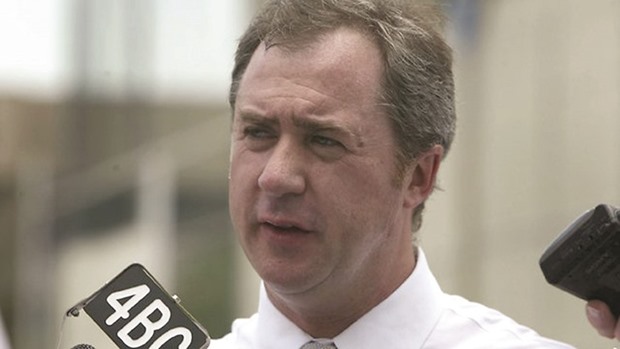The Australian cricket board faces an uphill battle to convince players to jettison a revenue-sharing model that has underpinned the game’s development for 20 years, according to former union boss Tim May, who brokered the landmark deal in 1997.
As the inaugural chief executive of the Australian Cricketers’ Association (ACA), May played a leading role in landing the model that has made the country’s cricketers among the highest paid in the world.
Cricket Australia now says the model, which has long allocated players about a quarter of total revenues, is obsolete.
The board has made an offer that allows only international players to share in surplus revenues, while domestic cricketers will have to settle for fixed amounts. The offer promises a hefty pay-rise on players’ earnings in the current five-year deal, but the players’ union has rejected any departure from the sharing model out of hand.
The dispute has become increasingly bitter, and CA chief executive James Sutherland raised the stakes at the weekend by declaring players would not be offered alternative contracts if they failed to reach a deal by the July deadline.
The threat, said former Test spinner May, would only stiffen players’ resolve.
“With six weeks to go before June 30, I think it’s inflammatory — and makes the players bind together more — for the CEO to come out and say ‘these are the terms that we are offering... either accept or be unemployed,’” May told Reuters in an interview from his home in Austin, Texas.
“An ultimatum like that would suggest that CA don’t want to get back to the negotiating table and negotiate this stuff. I find that puzzling.
“I think the cricketing community would be questioning their desire to get a deal done.”
The breakdown in negotiations has raised fears of a possible players’ strike for the Ashes starting in November, a hugely anticipated test series against England and a big contributor to CA’s coffers. Sutherland’s hard-line stance was criticised by the ACA and prompted players, including opening batsman David Warner, to talk of Australia lacking a team for the home summer.
Both the ACA and CA declined to comment further on the pay dispute when contacted by Reuters. CA has claimed its offer will address “under-investment” at grass roots level, but May questioned how that concern could not be addressed within a revenue-sharing model.
“It may be that they could pay the players a percentage point less or exclude some revenue flows, and they can still do that and have the benefits of ‘variable-ising’ expenses,” the 55-year-old said.
“The ACA probably aren’t moving because they don’t understand the rationale of what CA are trying to put before them.
“I don’t think it’s easy for anyone to understand what CA are talking about unless they disclose various figures and projections.”
When May fought the board for the first revenue-share deal, Australia’s non-internationals struggled to play full-time on meagre contracts.
State cricketers can now reap A$300,000 a season from domestic competition, including the lucrative and hugely popular Big Bash Twenty20 tournament.
Some local media pundits have criticised the leading players for hinting at an Ashes strike, even as they make millions from the game. May conceded that industrial action would be damaging for all parties in the eyes of the Australian public but he was adamant that players were not being greedy.
“If I was running a sport, I would want my players to be the best paid in Australia — because we’re all competing for the same athletes,” said May, a former head of the global players association FICA.
“The person on the street may say, ‘Well, they’re earning enough.’ But it’s about a bigger principle, and the principle is about (players) being an important stakeholder in this game.
“If the worth of what they are doing is increasing, why shouldn’t they share in that?”
Lehmann hopes no Ashes boycott, urges solution to pay row
Australia coach Darren Lehmann hopes the ongoing pay dispute will not prompt the players to boycott this year’s Ashes series and urged both sides to resolve the matter.
The Australian Cricketers’ Association (ACA) rejected a pay offer from their governing body, Cricket Australia (CA) earlier this month saying “a win for cricket administrators but a loss for cricket”.
CA has threatened to not renew contracts for 2017-18 and several players, including vice-captain David Warner and bowler Mitchell Starc, have hinted at a boycott of the Ashes series against England.
“I’m sure that (the boycott) won’t happen,” Warner told reporters in Brisbane. “I have my views but I’m not going to share it. I’m talking to both players and CA.”
Lehmann said that he would talk to the players when the squad assembles prior to the Champions Trophy in June.
“You have to do that. You have to keep it open and communication so we know what direction everyone’s going,” Lehmann said.
“Just getting together and working it out is the way to go. It always stays quite late in the negotiations — it happened last time and the time before that. You have those issues... There’s no panic, it’s just about the two parties getting together.”
Captain Steve Smith will join the squad after leading the Rising Pune Supergiants to Indian Premier League final and Lehmann said that he maintained constant contact with the 27-year-old.
“He’s really looking forward to getting the lads back together. There’s been a lot of emails and text messages around the place. He is (in good spirits). He’s been there for four months and hasn’t been home. But he’s ready to go.”

Tim May
